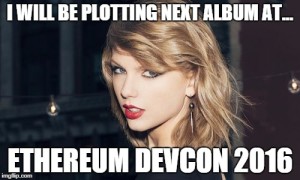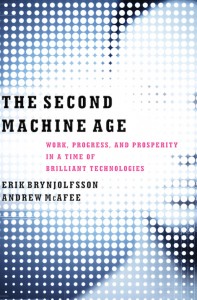startups
Working with Intelligent Assistants
Soon after 2020, service and knowledge workers might begin to see their own personal Intelligent Assistant as the key to their workplace success.
The age of the Intelligent Assistant is close but will take years and decades to unfold. Rather then envision Hal from 2001:A Space Odesssy or dream of Scarlett Johannsen’s voice “Samantha’ from the movie Her — focus on understanding the implications of systems like IBM Watson or Kensho’s Warren at work.
Learning Startup to Watch: Declara’s Vision of a Cognitive Graph
Declara is one of the most unique startups in the world of enterprise-scale learning platforms. The company has built an intelligent social learning system that is often referred to in the media as a combination of Google’s Knowledge Graph and Facebook’s Social Graph.
Declara’s vision is to create and leverage a Cognitive Graph that delivers neuroscience-inspired personalized learning based on the context of real-world experiences, intent, outcomes and social relationships.
The system aims to deliver content recommendations and facilitate the most appropriate social connections between learners across large organizations and social communities. The platform integrates the latest capabilities of artificial intelligence subdomains – machine-learning and deep-learning to scale-up predictive analytics and prescriptive learning experiences based on an individual’s intentions, capabilities and needs.
The company sees a very rich and untapped landscape of learning analytics that will benefit from neuroscience-based insights on learning experiences. The ‘adaptive’ and ‘intelligent’ labels simply mean that Declara’s infrastructure learns over time based on real-world interactions and outcomes.
Declara’s CEO Ramona Pierson (Twitter) has an amazing comeback life story and a brilliant mind that sees the convergence of neuro-cognitive science, intelligent social systems, semantic search, graph databases, et al. Co-Founder Nelson Gonzalez (LinkedIn; Twitter) brings a pragmatic and optimistic lens to learning analytics and the intersection of local cultural elements and semantic search.
Declara has a very clear scale-out oriented business model that targets large customers such as national government associations (e.g. Mexico’s SNTE, Australia’s CSE) and enterprises like Genetech. They picked a wonderful problem to solve. Declara is a startup to watch…!!
Learn More:
- Declara on Twitter
- Bloomberg article
- Business Week Interview Ramona Pierson Novemmber 2013
- Semantic Web blog post
Interesting links on cognitive graph:
- IBM is hiring an intern for Social Analytics and Cognitive Graph (umm!!);
- Nodus Labs Graph
- Garry’s tags on Machine-Learning; Deep-Learning; Graph; Adaptive; Watson
Videos
Ramona Pierson
Interview at 2014 Gigaom event
Ramona Pierson speaking
Nelson Gonzalez – 2010 brief interview – hopefully more Youtube clips will appear soon!
https://www.youtube.com/watch?v=xmjDVrz5X5g
Startup to Watch: Expected Labs & Mindmeld Intelligent Assistant
Some of the world’s most visionary and innovative software teams are working to develop intelligent assistant applications that stand at the crossroads of knowledge graphs, natural language processing and context aware user experience design.
Consumer grade intelligent assistant products include Apple Siri and Google Now. The business world is watching IBM Watson – a Deep Q&A service based on Big Blue‘s cognitive computing era vision for business applications in healthcare, finance and customer service.
These large software technology companies are not alone. There are dozens of intelligent assistant startups helping to drive the field forward. Which startups are worth following?
Startups to Watch: Expected Lab (Mindmeld)
Expected Labs first received attention in 2012 when its Mindmeld application won over hearts and minds as Finalists at TechCrunch Disrupt. In 2013 the company secured more funding to bring Mindmeld to market.
http://www.youtube.com/watch?v=5NGGSBt0hkw
Expected Labs is a young company working on an old problem. The idea of computer as an intelligent personal assistant is as old as the history of computing machines. The most contemporary lineage dates back to the U.S. DARPA sponsored the CALO program (Video of Cognitive Assistant that Learns & Organizes). CALO’s platform was spun-off into technology development firm SRI – which in turn sold a platform to Apple for its Siri applications.
The intelligent assistant product landscape has seen significant advances in recent years thanks to advances in machine-learning, deep-learning, data graphs, semantic collection volumes — and more transparent and predictable human users. The next five years will be an exciting time for the community ;-).
Expected Labs is a team to watch in 2014 and beyond.
Videos below on Mindmeld and the future of intelligent assistants
Product Promotion
http://www.youtube.com/watch?v=5NGGSBt0hkw
Updated: Detailed Product Overview
http://www.youtube.com/watch?v=XKGcvRkagmY
Expected Labs CEO Tim Tuttle (Twitter) has created a series of short videos looking at the Future of Intelligent Assistants around key areas of performance improvement: Speed, Accuracy, Intelligence, and Anticipation. Tuttle is a big thinker with a sharp mind and sense of where knowledge graphs and anticipatory user experiences could evolve!
Let Tim Tuttle explain why we should be bullish on the age of intelligent assistants…
Speed
http://www.youtube.com/watch?v=L-PoDin69-g
Understanding the User
http://www.youtube.com/watch?v=vN266-vlmiQ
** I think ExperienceAPI and Learning Record Stores (LRS) could be integrated here!
Accuracy
http://www.youtube.com/watch?v=irRKPlUDGNA
Role of Knowledge Graphs
http://www.youtube.com/watch?v=HciVAMkmeS0
Contextual Computing – Focus
http://www.youtube.com/watch?v=c2q31dMHX4E
Learn More?
Casual or skeptical observers might want to consider the future of Intelligent Assistants and how society might approach the idea of anticipatory computing experiences and the notion of the device listening to you! These platforms will bring new risks, rewards and responsibilities to our digital culture.
More curious technical minds will want to learn about machine-learning, deep-learning, graph databases (Neo4j), semantic graphs (e.g. ConceptNet), TinCan-ExperienceAPI, Learning Record Stores (LRS), et al.


